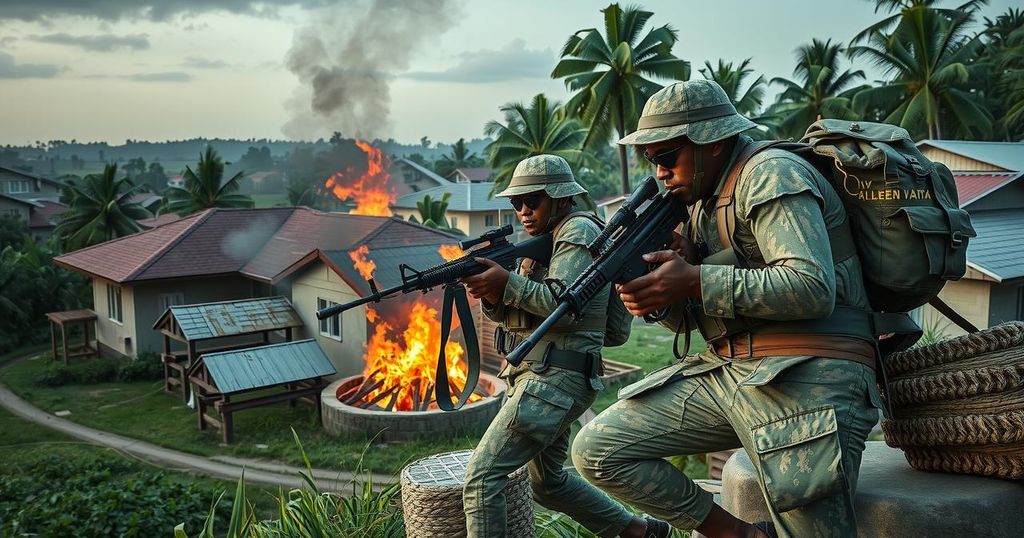M23 Rebels Capture Strategic Towns in Eastern Congo, Deepening Crisis

M23 rebels have captured Katale and Masisi in eastern Congo, exacerbating a humanitarian crisis affecting over 7 million displaced people. Local officials criticize the government’s lack of action, while accusations against Rwanda for support of M23 heighten tensions. Previous ceasefire agreements have failed to halt fighting, raising international concern over the escalating violence.
Rebels from the M23 group have captured two significant towns in eastern Congo as part of their advance in a region marked by ongoing volatility, according to residents and local officials. Katale and Masisi towns, with the latter being strategically positioned 49 miles from the regional capital, Goma, have fallen under M23 control, exacerbating the existing security and humanitarian crisis in the area. This conflict forms part of a larger struggle among over 100 armed groups competing for dominance in eastern Congo, a region rich in minerals, leading to the displacement of more than 7 million people.
Political spokesperson for M23, Lawrence Kanyuka, took to social media to assert their control over Masisi and emphasized the group’s commitment to civilian protection. However, local politicians, including Alexis Bahunga, deputy for Masisi territory, confirmed the troubling humanitarian ramifications as the situation deteriorates, with communities disrupted and displaced, resulting in an increasingly desperate scenario.
Criticism has also been levelled at the Congolese government, with John Banyene, the president of the civil society organization Forces Vives du Nord-Kivu, denouncing governmental inaction during this crisis. On the ground, testimonies from locals such as Bernard Kanyama indicate the severe impacts on communities, with reports of civilian casualties from M23 attacks contributing to widespread fear and uncertainty. Amidst this tension, accusations continue against Rwanda for supporting M23, an allegation Rwanda denies, though it acknowledges the presence of its troops in the region for security measures. This complex backdrop is compounded by previous ceasefire agreements that have evidently failed to bring about lasting peace, further amplifying international concerns over the escalation of violence in the region.
The M23 group’s resurgence in eastern Congo is deeply intertwined with a historical context of conflict in the region. Eastern Congo has been plagued by instability due to the presence of numerous armed groups, each vying for control over the region’s abundant natural resources. The M23 has emerged as one of the more prominent factions, with its roots going back to prior conflicts and political turmoil. Civilian populations have borne the brunt of this violence, with widespread displacement and a deteriorating humanitarian situation. Efforts for peace have been undermined by accusations of foreign intervention, particularly regarding Rwanda’s alleged support for the M23, escalating tensions between the two countries. Stalled ceasefire agreements further complicate the prospects for a stable resolution to the conflict, contributing to ongoing humanitarian crises.
The recent capture of two towns by the M23 rebels represents a significant escalation in an already dire humanitarian and security crisis in eastern Congo. With millions displaced and communities facing catastrophic circumstances, local officials criticize governmental responses as inadequate, while international observers express grave concern over the ongoing violence. The situation remains precarious, as previous attempts at achieving peace through ceasefires have failed to take root, leaving the region in a fragile state.
Original Source: triblive.com








